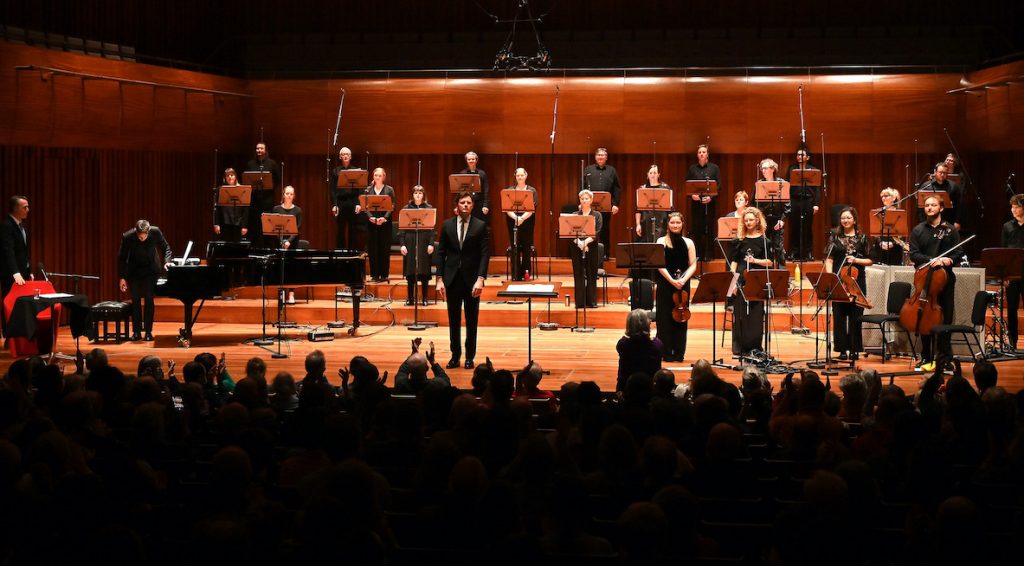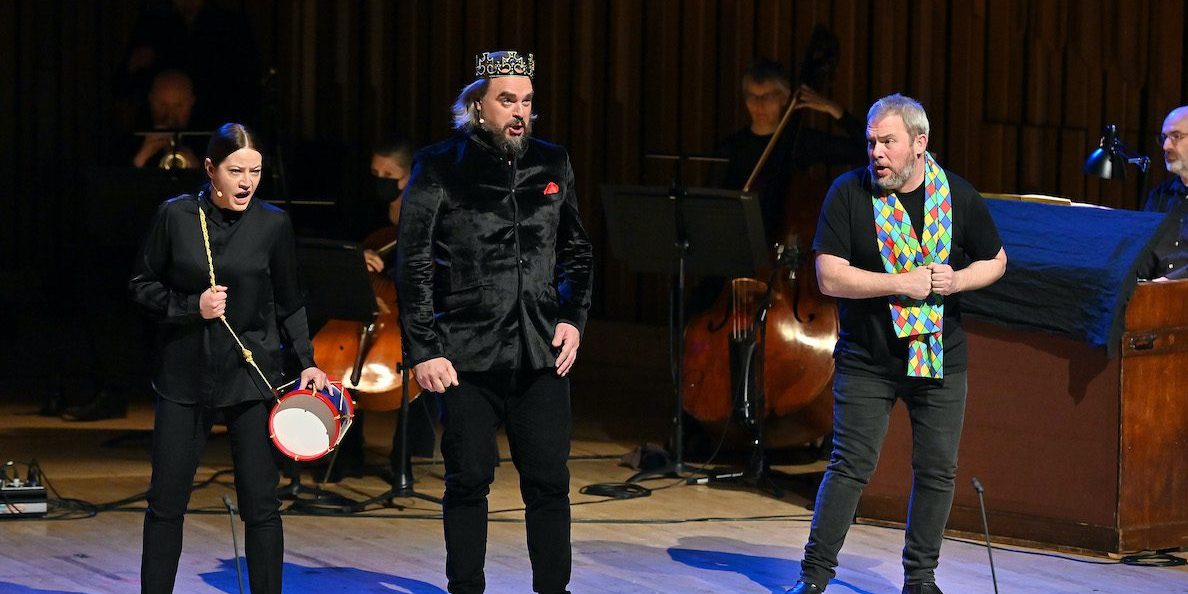Last weekend the Barbican Centre devoted a whole day to the music created at the Theresienstadt (Terezin) ghetto in World War Two. ‘Total Immersion: Music for the End of Time’ offered orchestral and choral music, chamber compositions, and an opera, all created by the (mainly) Czech-Jewish internees during their incarceration at the one concentration camp that tolerated Jewish religion and creative cultural expression in a wholly cynical attempt by the Nazi regime to show to the Red Cross and others that the camp was a functioning and happy community. In fact, most were starving and almost all were transported to the gas chambers of Auschwitz in 1944.
Yet from within the paradox of the confines of this temporary creative space came a large body of genuinely fine creative achievement across many genres, devised despite and in response to the shadow of present cruelties and likely death. As Viktor Ullmann, composer of the opera that was performed at the end of the day wrote: ‘By no means did we sit weeping on the banks of the waters of Babylon, and our endeavour with respect to Arts was commensurate with our will to live.’ This day offered magnificent proof of this claim.
In the afternoon a selection of shorter pieces was performed at Milton Court interleaved with readings from diaries, memoirs, and commentaries all delivered with controlled poise by Simon Walfisch, who also sang two items. The restraint of his reading was an exemplary demonstration of the principle that less is more when handling such emotionally charged material. The bulk of the work lay with the BBC Singers under Nicholas Chalmers who performed a selection of very moving arrangements of Yiddish and Czech folk melodies. They were joined by students from the Guildhall School who played a number of chamber works of rare quality and formal originality. The styles showed the influence of Schoenberg, Janáček, and the cabaret world of Weimar – as you would expect – but with flair-filled instrumental sonorities and an exceptional intensity of expression derived from the context of their composition. A couple of cabaret-style numbers reminded us that there was room for ironic humour too.
The evening performance of the ‘Emperor of Atlantis’ was semi-staged with the singers collecting props and costume elements as they entered and then performing in front of and behind a thirteen-strong chamber orchestra drawn from the BBC Symphony Orchestra. This was entirely in keeping with the rough and ready nature of the original performance, or rather rehearsals, as the SS banned it before the first night because of the apparent satire of Hitler in the title role. It is work of some twenty short scenes, lasting fifty minutes, with a witty, tartly satirical text provided by Ullmann’s fellow inmate, writer, and graphic artist, Petr Kien.

The plot concerns an Emperor who declares a state of permanent war without consulting Death who promptly goes on strike creating a situation of endless strife and environmental degradation – a sort of perpetual ‘Hunger Games’ – which is actually worse than death itself. Eventually, Death is persuaded to resume normal service and the Emperor agrees to be his first victim. Given the background to its composition where the creators were in a kind of living death, it is hard to imagine a more profound depth of satire and irony, where death is preferable to life.
This is demanding music, requiring a mastery of highly contrasting styles – both a Straussian lyricism and a mordant pin-point expressionist precision – from all the performers. There are no weak links in the cast, but stand-outs are Thomas Johannes Mayer as the Emperor and Henry Waddington as Death who develop their extended solos with full characterisation, gravity, and humour. The instrumentalists should really be seen as virtuoso soloists too in this piece, and the cello of Sarah Monks was peerlessly eloquent throughout. There is an astonishing moment at the close of the work where the whole cast celebrates the return of death using the Lutheran chorale made famous by JS Bach – ‘A fortress sure is our God’. Performed as the conclusion to both concerts it reduced the audience to a stunned silence. For this crystallises the tragedy of the moment uniquely – fusing the Holocaust of death with one of the key symbols of German cultural achievement and at the same time dramatizing the embedded creativity of Jewish culture within German heritage.
At the Q&A at the end of the pre-performance talk, a very frail lady rose stiffly to introduce herself as a survivor of Terezin: ‘We were hungry every day, but this place was the start of my cultural education, a journey that has had no end….’

